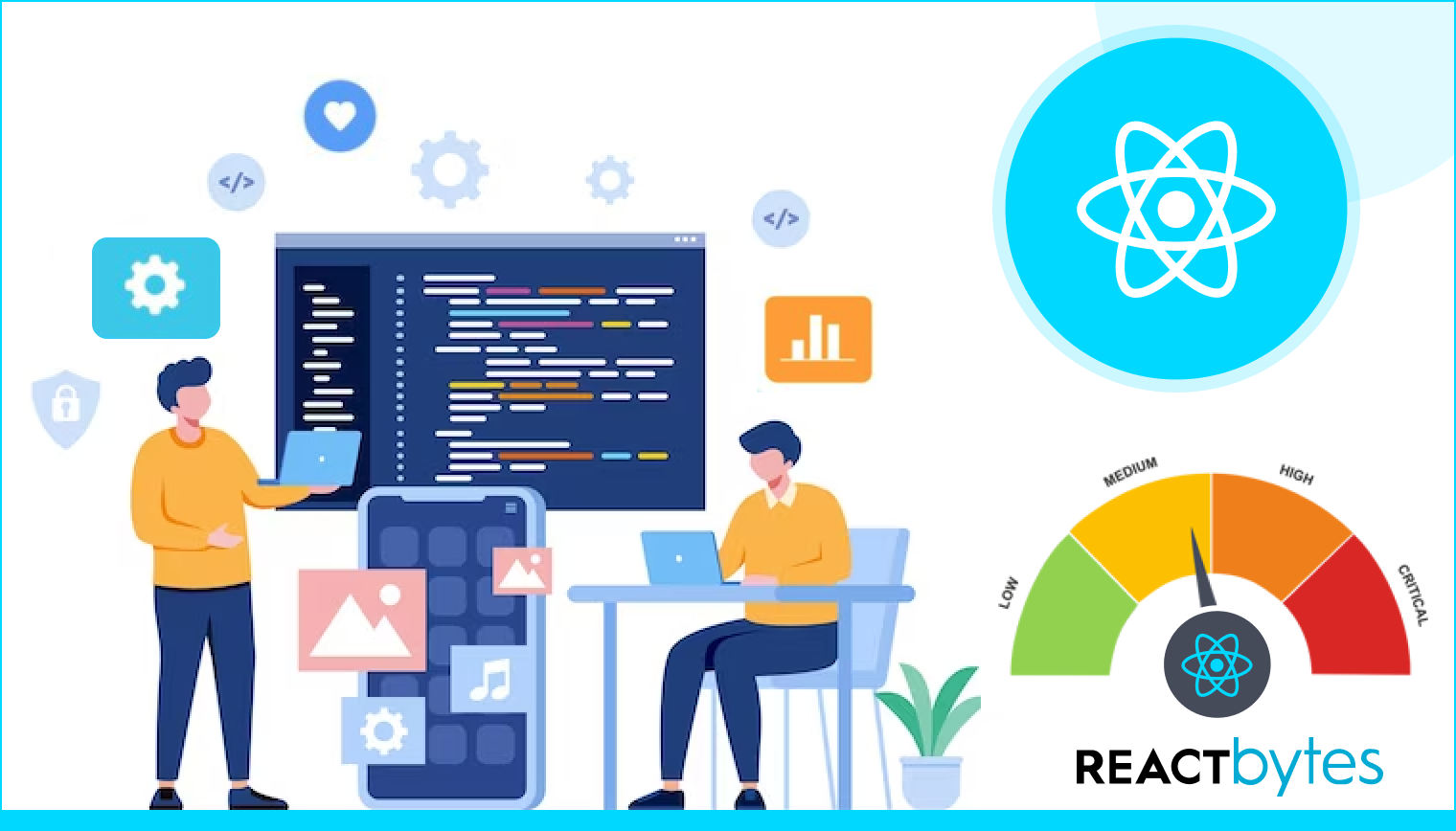Optimizing the performance of React JS applications is essential for developers committed to deliver the best user experience. This focus is instrumental in retaining user engagement and keeping them actively involved and satisfied with the application.
As projects grow in complexity, optimizing performance becomes paramount for delivering a seamless user experience.
Here, we will delve into essential best practices to enhance the performance of React.js applications, ensuring they run smoothly and efficiently.
Latest React Version
Keeping your React.js library up-to-date is the first step towards optimal performance. The React team regularly releases updates containing performance improvements, bug fixes, and new features. Ensure you are using the latest version of React to take advantage of these enhancements.
# Update React using npm
npm install react@latest
Code Splitting
Break down your application into smaller, more manageable parts and load them only when necessary. Code splitting reduces the initial bundle size, leading to faster loading times. React supports dynamic imports, making it easy to implement code splitting.
// Before
import SomeComponent from ‘./SomeComponent’;
// After (Code Splitting)
const SomeComponent = React.lazy(() => import(‘./SomeComponent’));
Bundle Size Analysis
Leverage tools like Webpack Bundle Analyzer to analyze your bundle size. Identifying and eliminating unnecessary dependencies or large modules can significantly improve your application’s performance.
# Install Webpack Bundle Analyzer
npm install –save-dev webpack-bundle-analyzer
Memoizing React components
Memoization, using React.memo, prevents unnecessary re-rendering of functional components, especially when their props remain unchanged. This optimization technique can significantly enhance the efficiency of your application.
const MemoizedComponent = React.memo(MyComponent);
Virtualization
Efficiently handle large lists of data by implementing virtualization techniques. Libraries like react-virtualized and react-window render only the items visible to the user, reducing rendering overhead.
# Install react-window
npm install react-window
Optimize Renders with PureComponent and shouldComponentUpdate
For class components, extend React.PureComponent or implement shouldComponentUpdate to prevent unnecessary renders. This is particularly useful for complex components where performance gains can be significant.
class MyComponent extends React.PureComponent {
// …
}
Use the Production Build
When deploying your application, use the production build of React. This build is optimized for performance and includes features like minification and dead code elimination.
# Build for production
npm run build
Optimize Images and Assets
Reduce the file sizes of images and other assets to enhance overall application performance. Tools such as ImageOptim or TinyPNG can be employed to compress images without sacrificing quality.
Lazy Loading for Images
Implement lazy loading for images to load them only when they come into the user’s viewport. The react-lazyload library simplifies the implementation of lazy loading for images.
# Install react-lazyload
npm install react-lazyload
Debouncing and Throttling
Implement debouncing and throttling for events that trigger frequent updates, such as window resizing or scrolling. This helps control the rate at which these events trigger updates, preventing performance bottlenecks.
Conclusion
Optimizing React.js application performance is a multifaceted task that requires a combination of best practices, tools, and continuous monitoring. By adhering to these best practices into your react js development workflow, you can create fast, efficient, and responsive applications that provide an exceptional user experience.
Regularly reviewing and updating your performance optimization strategies will ensure that your React.js applications remain at the forefront of efficiency and provide an exceptional user experience.
We can take your projects to the next level with our expert React JS developers. Our seasoned React JS developers bring proficiency and innovation to every project, ensuring top-notch performance and user satisfaction.
